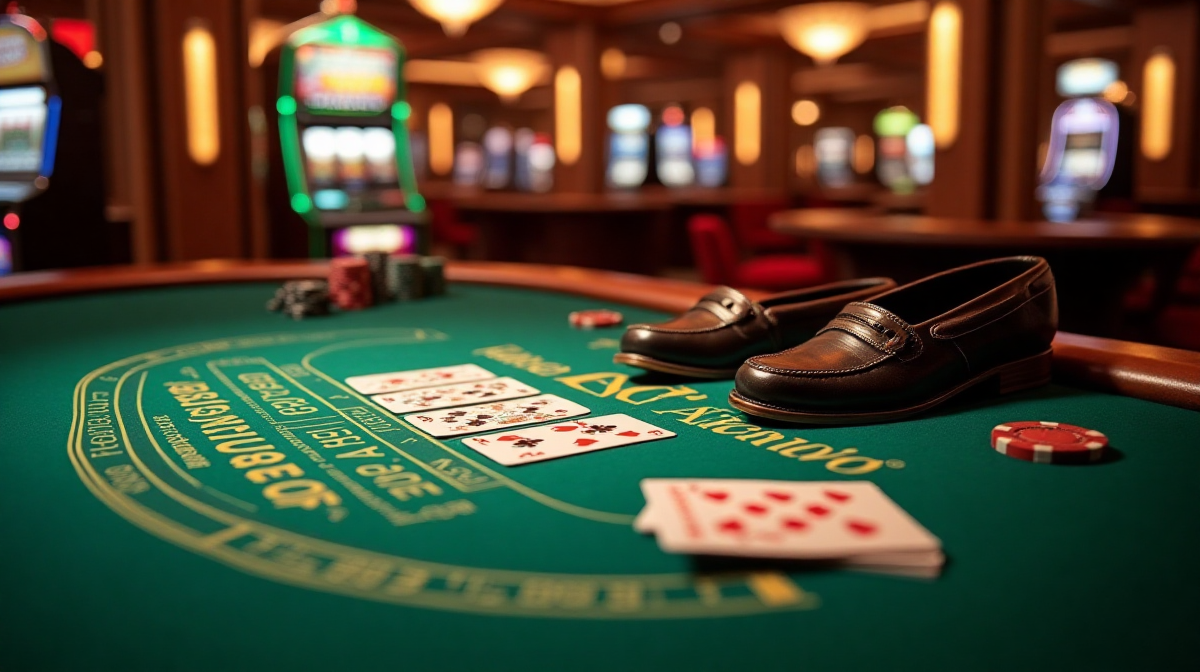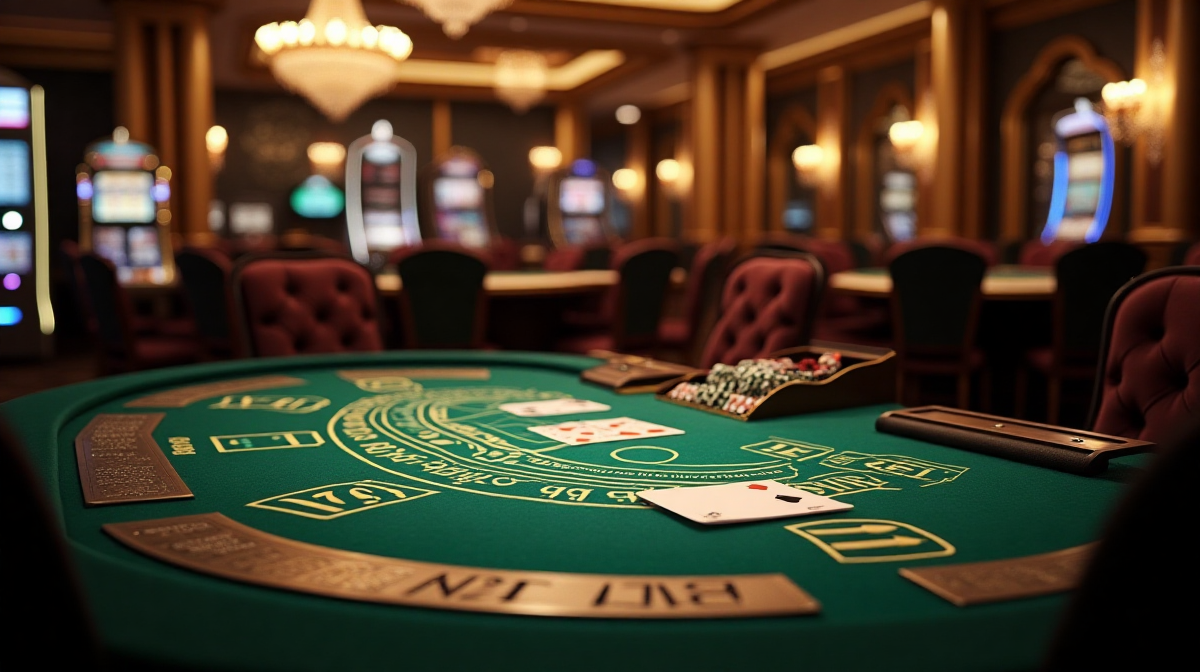Blackjack Game Guide: Win More Today
What is Blackjack? – A Brief Overview
Blackjack, also known as 21, is a casino game where players compete against the dealer to get a hand total as close to 21 as possible, without going over. It's a game of skill and strategy, but also involves a degree of luck. Many players enjoy the thrill of the game, especially on platforms like i lot bet, where convenient access and exciting gameplay are offered. Understanding the core principles is the first step to becoming a successful player.
History of Blackjack – From Origins to Modern Game
The origins of Blackjack can be traced back to 18th-century France, where a similar game called Vingt-et-Un (Twenty-One) was popular. The game made its way to the United States, where it evolved and gained the name Blackjack – possibly due to the slang term for the Ace and Jack combination that paid a bonus. Today, Blackjack is a staple in casinos worldwide and increasingly accessible online. Many new players start their journey by exploring options like i lot bet login to experience the game digitally.
Blackjack Terminology – Understanding the Lingo
Familiarizing yourself with Blackjack terminology is crucial. Hit means to take another card. Stand means to end your turn without taking another card. Bust means to exceed 21, automatically losing the hand. Double Down allows you to double your bet and receive only one more card. Split allows you to separate a pair of cards into two separate hands. If you're new to the game and considering trying your luck, a quick i lot bet sign up process can get you started with a demo version to practice these terms.

House Edge in Blackjack – Exploring the Odds
The house edge in Blackjack is relatively low compared to other casino games, especially when played with optimal strategy. This means the casino has a slight advantage over players in the long run. However, skilled players can significantly reduce this edge, and sometimes even gain an advantage, making Blackjack one of the most favorable games for those willing to learn.
Objective of the Game – Beat the Dealer
The primary objective in Blackjack isn't necessarily to get 21, but to beat the dealer's hand without exceeding 21. You win if your hand total is higher than the dealer's, the dealer busts, or you have 21 on your first two cards (a Blackjack) and the dealer doesn't.
Card Values – How Cards are Ranked
Cards in Blackjack have the following values: Numbered cards (2-10) are worth their face value. Face cards (Jack, Queen, King) are each worth 10. An Ace can be worth either 1 or 11, depending on which value benefits your hand the most.
Gameplay Flow – Step-by-Step Guide
The gameplay typically follows these steps: Players place their bets. The dealer deals two cards to each player and two cards to themselves (one face up, one face down). Players take turns deciding whether to hit, stand, double down, or split. The dealer reveals their face-down card and must hit until their hand total is 17 or higher. The winner is determined based on the rules outlined in the Objective of the Game. If you’re looking for a place to practice, many platforms, like i lot bet, offer demo versions.
Common Blackjack Variations – American vs. European Rules
There are several variations of Blackjack. American Blackjack typically allows the dealer to hit on a soft 17 (an Ace counted as 11). European Blackjack usually requires the dealer to stand on a soft 17. Other variations include Spanish 21 and Blackjack Switch, each with its own unique rules.
Understanding Basic Strategy Charts – Why They Work
Basic strategy charts are mathematically derived guides that tell you the optimal move to make in every possible situation, based on your hand and the dealer's upcard. Using basic strategy significantly reduces the house edge. It’s not about memorizing everything, but understanding the logic behind the recommendations. If you enjoy the blackjack game, learning basic strategy is vital.
When to Hit – Knowing When to Take Another Card
Generally, you should hit when your hand total is 11 or less, or when your hand total is 12-16 and the dealer's upcard is 7 or higher.
When to Stand – Knowing When to Hold Your Hand
You should stand when your hand total is 17 or higher, or when your hand total is 12-16 and the dealer's upcard is 6 or lower.
Doubling Down – Strategic Opportunities
Doubling down can be a powerful strategy when you have a strong hand (like 11) and the dealer has a weak upcard. It allows you to increase your potential payout.
Splitting Pairs – Maximizing Your Potential
Splitting pairs can be advantageous when you have a pair of Aces or 8s. It gives you the opportunity to create two potentially winning hands.
Surrendering – When to Cut Your Losses
Surrendering allows you to forfeit half of your bet and end your hand if you believe you have a poor chance of winning.
Card Counting – A Deeper Dive
Card counting is a technique used to track the ratio of high cards to low cards remaining in the deck. This information can give players an edge, but it requires significant skill and practice. The Hi-Lo system is a common card counting method.
Betting Strategies – Martingale, Paroli, and Other Systems
Betting strategies, like the Martingale (doubling your bet after each loss) and the Paroli (doubling your bet after each win), can be used to manage your bankroll. However, these systems are not foolproof and can be risky.
Reading the Dealer – Observing Dealer Tendencies
While not always possible, observing the dealer's tendencies can sometimes provide subtle clues. This is more applicable in land-based casinos.
Bankroll Management – Protecting Your Funds
Proper bankroll management is essential for long-term success. Set a budget, stick to it, and avoid chasing losses.
Casino Blackjack Etiquette – Proper Behavior
Be respectful to the dealer and other players. Avoid slow play and make your decisions promptly.
Tipping the Dealer – A Common Practice
Tipping the dealer is a common practice, especially when you're winning.
Understanding Casino Comps – Earning Rewards
Casinos often offer comps (rewards) to players based on their level of play.
Online vs. Land-Based Blackjack
Online Blackjack offers convenience and accessibility, while land-based Blackjack provides a more social and immersive experience.
Ignoring Basic Strategy – The Biggest Pitfall
Failing to use basic strategy is the biggest mistake players make.
Playing on Tilt – Emotional Betting
Playing on tilt (making emotional bets after a loss) can lead to poor decisions.
Improper Bankroll Management – Risks of Overbetting
Overbetting can quickly deplete your bankroll.
Falling for Gambler’s Fallacy – The Myth of Due Wins
The gambler's fallacy is the belief that past events influence future outcomes in a random game.

Recommended Books on Blackjack
Several excellent books on Blackjack are available, offering in-depth strategies and techniques.
Online Tools and Calculators
Online tools and calculators can help you practice basic strategy and calculate optimal bets.
Reputable Websites for Strategy & News
Numerous websites provide Blackjack strategy guides and news.
Practice Blackjack Online – Free Play Options
Many online casinos, including potentially i lot bet, offer free play options, allowing you to practice without risking real money. This is a great way to hone your skills and become comfortable with the game.

